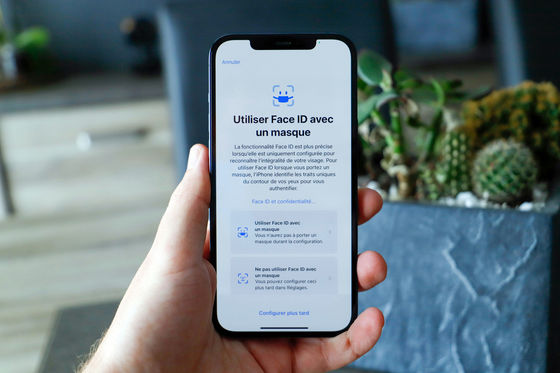A bill recognizing the ``right to repair'' has been passed in Oregon, USA, and manufacturers such as Apple are concerned that it ``involves security risks'' due to the broad content that allows the use of third-party parts.

In the U.S. state of Oregon, a bill recognizing the '
Oregon passes expanding right-to-repair law, defying tech industry concerns - oregonlive.com
https://www.oregonlive.com/silicon-forest/2024/03/oregon-passes-expansive-right-to-repair-law-defying-tech-industry-concerns.html

Oregon Passes Right To Repair Law Apple Lobbied To Kill | Techdirt
https://www.techdirt.com/2024/03/13/oregon-passes-right-to-repair-law-apple-lobbied-to-kill/

On Monday, March 11, 2024,the Right to Repair Act (SB1596) was passed in Oregon, giving consumers the legal right to repair home appliances themselves. This bill would require manufacturers to have access to the tools, parts, and manuals needed to repair electronic devices.
Oregon's Right to Repair bill was passed by the state Senate in February 2024 by a vote of 25-5. Furthermore, on March 11, the bill was passed in the House of Representatives with a vote of 42 to 13. At the time of writing, the Right to Repair bill is awaiting signature from Oregon Governor Tina Kotek. Governor Kotek has not announced whether he supports the Right to Repair bill, but it is common for governors to not announce their intentions before the bill is passed.

The Right to Repair Bill includes:
- A requirement that home appliance manufacturers provide parts, tools, and repair manuals that consumers and third-party repairers can obtain on 'fair and reasonable terms.'
- Requirements that prohibit companies from blocking third-party parts that are 'non-functional substitutes' for manufacturer parts. There's also a requirement that manufacturers not interfere with performance or send 'misleading warnings or notices' when consumers install third-party parts.
・From July 1, 2027, violators will be subject to a fine of up to $1,000 (approximately 148,000 yen) per day. The bill would apply to consumer electronic devices manufactured after July 1, 2015, or mobile phones manufactured after July 1, 2021.
Oregon's Right to Repair bill has stricter provisions regarding third-party parts than bills in other states. This is because the Right to Repair Bill specifically limits how manufacturers can use 'parts pairing'. Note that 'parts pairing' refers to identifying authenticated components using software.
Repair companies and consumer advocacy groups are hailing Oregon's Right to Repair bill as a new landmark in right-to-repair legislation. Nathan Proctor, a public interest researcher for advocacy groups, said of the Oregon bill's passage, 'We believe this will expand the adoption of the right to repair. Oregon's bill is the strongest right to repair in America. It will be part of the bill,' he said.

Oregon's right-to-repair bill has been opposed by technology companies, including Apple. Specifically, there have been voices of opposition from the smartphone industry, industry groups, and electronic device-related groups, and there is a possibility that problems may occur with biometric sensors (sensors used for facial recognition and fingerprint authentication) and batteries. I'm afraid there is.
John Perry, Apple's chief secure repair architect, said during a public hearing on Oregon's Right to Repair bill that ``the bill's extensive component combination restrictions will make it difficult for consumers to... I am still concerned about the risks.'
Apple supports consumers' right to repair, but points out that Oregon's right to repair bill is 'too broad.' Perry also worried that it could introduce vulnerabilities in biometric security and battery safety, and could lead to an increase in device theft.
Upon passage of Oregon's Right to Repair Bill, Apple said, ``iPhones contain important personal information about their owners, including financial information, health information, and location information. 'We may be required to allow unknown and unsecure third-party Face ID or Touch ID modules to unlock personal information.' 'While we continue to support the right to repair, Oregon's bill We strongly believe that this disregards the consumer protections that our state's citizens deserve.'

During a floor debate on March 11, Republican Rep. Bugle Osborn decried the potential security risks of the Right to Repair bill and said the bill would lead to lawsuits. Did. Rep. Osborne has called for Oregon's Right to Repair bill to be amended to be more narrowly focused, similar to California's Right to Repair law .
In response, right-to-repair advocates have criticized the stance of technology companies, saying, ``The high-tech industry has shown unreasonable concerns about the bill.'' 'We're going to force manufacturers to make something new,' Democratic Sen. Janine Solman, who has been leading the effort to implement the Right to Repair bill in Oregon, said during a forum introducing the bill. 'What we want to do is give Oregonians the opportunity to choose where or whether to have their car repaired.' .
In addition, Apple is starting a `` Self-Service Repair Program '' in 2022 to support the right to repair. The content of this service has been gradually updated, and in June 2023, it will no longer be necessary to 'contact Apple after repair.'
Apple's official service that allows you to repair your iPhone or MacBook yourself has been updated, eliminating the need to ``contact Apple after repair'' - GIGAZINE

Related Posts:







